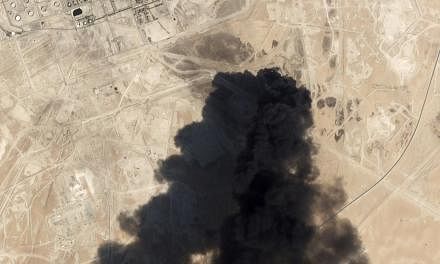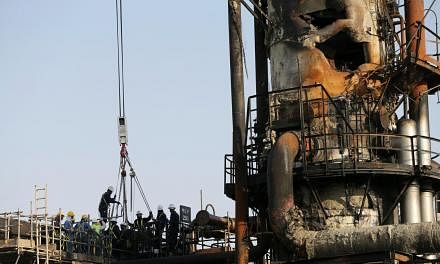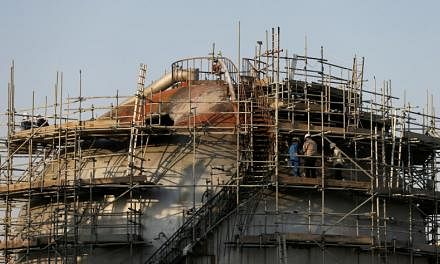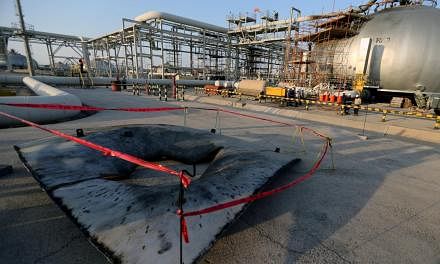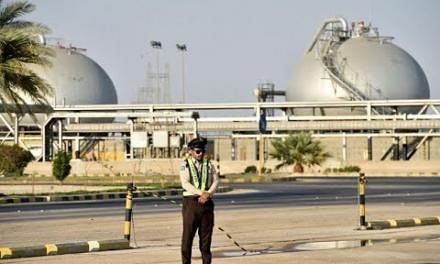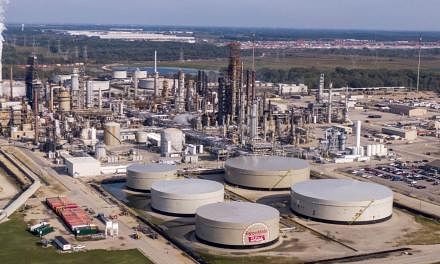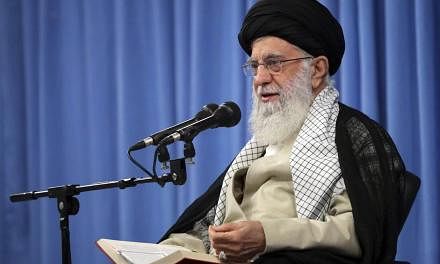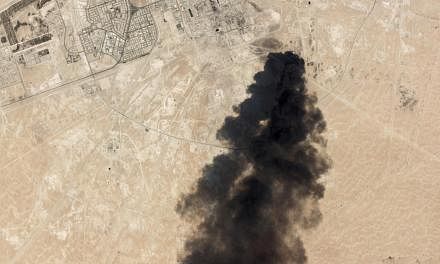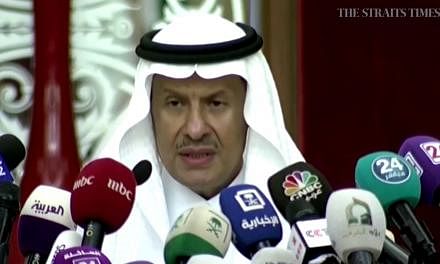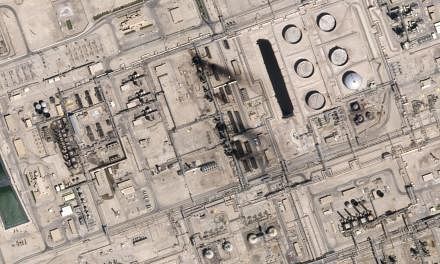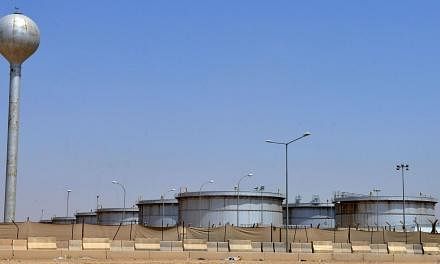WASHINGTON (REUTERS) - The attack on Saudi Arabia's oil facilities on Saturday that has threatened global oil supplies came from a direction indicating that Iran was behind it, and cruise missiles may have been the weapon of choice, according to a senior US official.
The comments added heft to Washington's accusation that Iran launched the attacks that knocked out more than 5 per cent of global oil supply, instead of the Yemeni Houthi group that claimed it.
Teheran rejected the accusation, but said it was ready for war.
The strike on the heartland of Saudi Arabia's oil industry, which included damage to the world's biggest petroleum-processing facility, was expected to send oil prices up US$5 to US$10 per barrel on Monday and inflame tensions across the Middle East.
The US official, who asked not to be named, said on Sunday there were 19 points of impact in the attack on Saudi facilities and that evidence showed the launch area was west-northwest of the targets - the direction of Iraq and Iran - not south from Yemen.
The official added that Saudi officials indicated they had seen signs that cruise missiles were used in the attack, which is inconsistent with the Iran-aligned Houthi group's claim that it conducted the attack with 10 drones.
"There's no doubt that Iran is responsible for this. No matter how you slice it, there's no escaping it. There's no other candidate," the official told reporters.
Iranian Foreign Ministry spokesman Abbas Mousavi dismissed the US allegation it was responsible as "pointless".
A senior Revolutionary Guards commander warned that the Islamic Republic was ready for "full-fledged" war.
"All American bases and their aircraft carriers in a distance of up to 2,000 kilometres around Iran are within the range of our missiles," the semi-official Tasnim news agency quoted Commander Amirali Hajizadeh as saying.
Riyadh has accused Iran of being behind previous attacks on oil-pumping stations and the Shaybah oilfield, charges that Teheran denies.
Saudi Arabia has not yet blamed any party for Saturday's strike. Riyadh also says Tehran arms the Houthis, a charge both deny.
State oil giant Saudi Aramco said the attack cut output by 5.7 million barrels per day, at a time when Aramco is trying to ready itself for what is expected to be the world's largest share sale. Aramco gave no timeline for output resumption.
A source close to the matter told Reuters the return to full oil capacity could take "weeks, not days".
Traders and analysts said crude may spike to as high as US$100 a barrel if Riyadh fails to quickly bring back supply. Another source briefed on the developments said
Saudi oil exports would continue to run as normal this week thanks to large storage in the kingdom, the world's top oil exporter. It ships more than 7 million barrels daily to global destinations.


